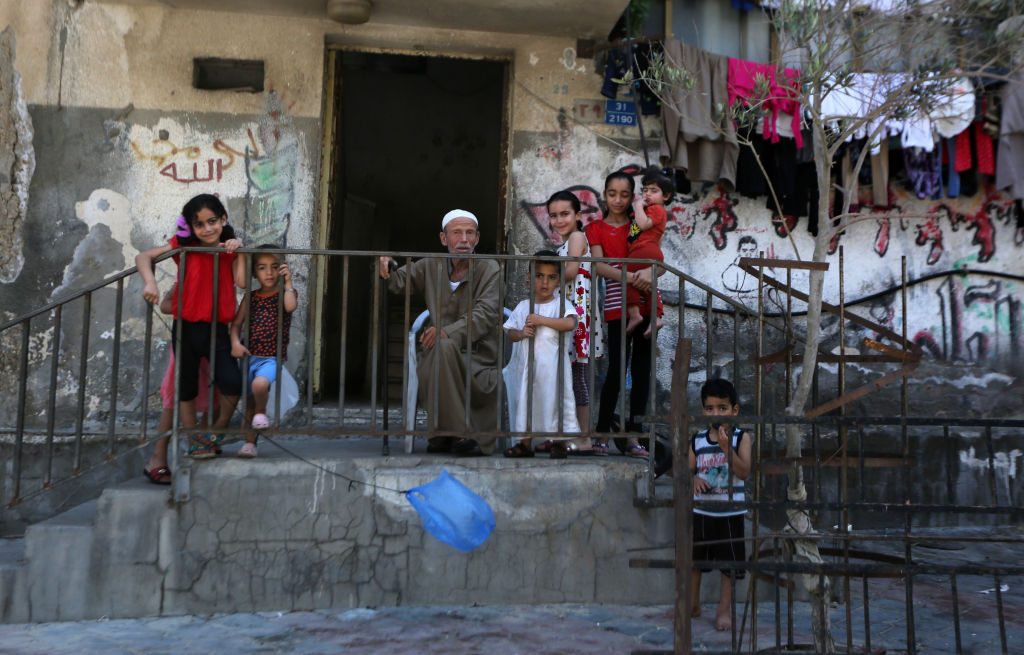IN THE MEDIA
The Palestinian Authority needs to get its priorities straight
July 31, 2019 | Sharyn Mittelman

The Palestinian Authority boycotted the US-led international conference held in Bahrain in mid-June on the economic aspects of the US Middle East peace plan. PA President Mahmoud Abbas made the decision to reject the US proposal—which would have provided around US$50 billion towards improving healthcare, education, investment and infrastructure for Palestinians—even before it was released. He also launched a campaign of intimidation against Palestinian businesspeople who attended the summit. The PA’s intelligence forces arrested one of them, Salah Abu Miala, on his return to the West Bank city of Hebron, while another reportedly went into hiding.
US pressure led to the release of Abu Miala, but the message to Palestinians was clear: those who dissent from Palestinian orthodoxy and seek to normalise ties with Israel in the interests of peace and prosperity will be punished.
The old guard of the Palestinian leadership has for decades relied heavily on international aid, but that funding is now drying up as more and more countries place conditions on it. For example, both Australia and the US have refused to directly fund the PA because it continues to make salary payments to terrorists and their families.
The Trump administration is offering the Palestinians an economic model that would end the reliance on aid. The plan aims to more than double Palestinian GDP, create a million new jobs, and reduce poverty in Palestinian areas by 50%. Infrastructure projects under consideration include desalination and energy plants and a road and rail corridor between Gaza and the West Bank. More than half of the funds would be spent on Palestinians in the West Bank and Gaza, with the remainder divided among Egypt, Jordan and Lebanon for the Palestinians living in those nations.
Before dismissing the proposal, perhaps the PA should have asked the Palestinian people, whom polls show are overwhelmingly concerned about economic and quality-of-life issues, if they would like to have improved education, job prospects, healthcare, electricity and water management? In Gaza the unemployment rate is estimated at 44% and in the West Bank it’s close to 20%.
The PA has said that it will not consider the economic plan without first resolving the political aspects of the conflict. For its part, the US has indicated that it intends to unveil the political dimensions of its plan after the upcoming Israeli elections, probably in November.
However, the reality is that Israel and the PA have time and time again negotiated to resolve the conflict with little success. In 2000, 2001 and 2008, Israeli prime ministers Ehud Barak and Ehud Olmert offered the PA nearly all of the West Bank, Gaza and Arab neighbourhoods of east Jerusalem to create a Palestinian state and end the conflict, but these proposals were rejected or ignored by the Palestinian leadership. Israel also withdrew from Gaza in 2005, which led to a Hamas takeover of the territory and thousands of rockets repeatedly fired towards Israel. Meanwhile, the PA has been refusing to negotiate on any issues—economic or political—since 2014.
In light of these realities, it makes sense to try something new—like improving the economic situation before addressing the intractable political gaps. As Jared Kushner, the chief architect of the US economic plan, said in his speech at the Bahrain conference, ‘For too long the Palestinian people have been trapped in a framework for the past.’ He also noted, ‘Agreeing on an economic pathway forward is a necessary precondition to resolving the previously unsolvable political issues.’
The PA might be wise to seize the momentum for dealing with Palestinians’ needs while the offer is on the table. For even while the Bahrain conference was taking place, another issue was brewing that’s considered more important by many of the Arab nations attending the summit: the growing tensions with Iran and what to do about it.
The PA needs to understand that the situation has changed and that Israel is no longer the primary target of hatred from Arab states and indeed is seen by many as a useful ally against Iran. As a result, many of the Arab nations which attended the summit, including Saudi Arabia, Jordan, Egypt and the United Arab Emirates, will likely put pressure on the PA to participate in talks—economic and political—so, logically, it’s hard to see what they have to gain by refusing to even engage on the Bahrain proposals.
Sharyn Mittelman is a senior policy analyst at the Australia/Israel & Jewish Affairs Council.
Tags: Bahrain conference, Israel, Middle East, Palestinians





